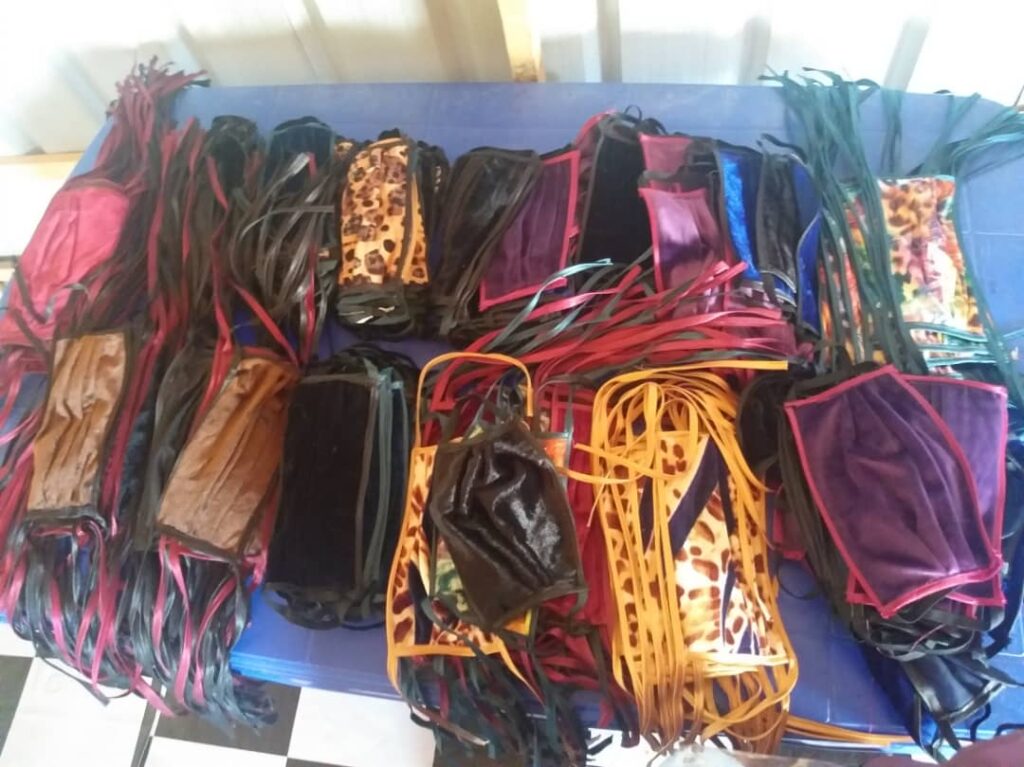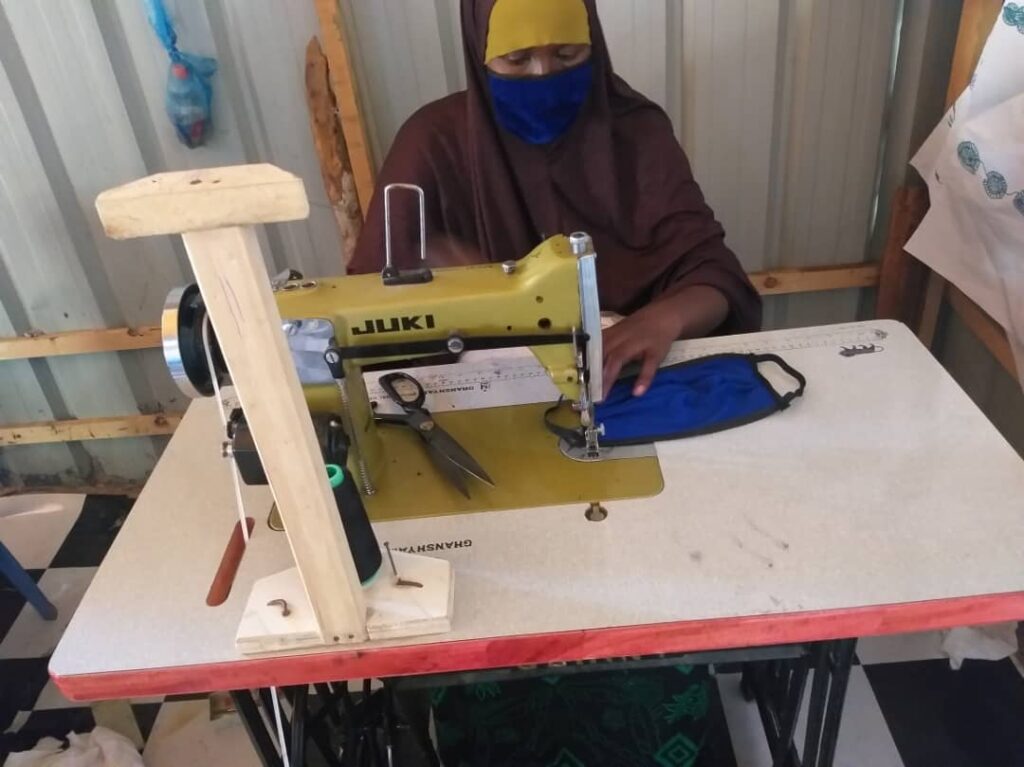Maryan Abdi Mohamed is many things. She is a 31-year-old married woman who is the mother of six children, and she is a successful entrepreneur. Maryan lives in the Kaafi settlement for internally displaced persons (IDPs) in Mogadishu, the capital of Somalia. Until recently, she worked as a laundress in private homes. Then she joined an International Medical Corps-supported Women and Girls Safe Space (WGSS) group where she learned how to weave. Eventually, she began selling her woven goods in a local market. When the COVID-19 pandemic came to Somalia, she quickly pivoted and started making face masks with other WGSS group members. Though she continues to weave baskets, mats and other beautiful crafts, Maryan now supports her family with the combined income from selling face masks and woven goods.
Life Before Mogadishu
In 2012, war broke out in the coastal city of Marka, just 57 miles from Mogadishu. The war, which lasted six years, left behind a trail of death and destruction. The once prosperous port city fell into chaos, poverty and anarchy, and many people fled their homes and farmlands.
Maryan’s family was among those that fled their rural home to seek protection and humanitarian assistance, leading them to settle in the Kaafi IDP camp. When they arrived at the camp, they lived in makeshift structures and endured long days in the scorching sun. Her husband worked as a bus conductor, but his meager income could not support their family. Maryan and her family had to depend on her sister—a divorcee with four children—for their basic needs.
“As a family, we were forced to adapt to this hard life and live with only one meal a day,” she says.
To earn money, Maryan and other women in the camp turned to jobs doing laundry in private homes in Mogadishu. Despite the long hours and poor pay, Maryan was grateful because such opportunities were hard to find. But it wasn’t long before a friend convinced Maryan to leave her job and join an International Medical Corps-supported WGSS group. This decision changed her life.
As a WGSS group member, Maryan has received continuous psychosocial support services and learned practical skills, including sewing, weaving and mat making.
Overcoming Challenges
Weaving, which is a source of income for many households in Somalia, has restored confidence and provided economic empowerment for many women in the IDP camp.
Maryan first learned to weave dried reeds, turning them into exquisite baskets, mats and hats, then began selling them in the Bakara market in Mogadishu. Despite her early success, with the onset of the COVID-19 pandemic, crowds dwindled and the market became less prosperous. Additionally, the climate around Mogadishu can be hostile, and hot weather makes it even harder for women to access the market.

Maryan sought out an alternative product, and she soon realized that people were in dire need of face masks to protect them from COVID-19.
Armed with this solution, Maryan consulted other WGSS group members and together they agreed to produce more than 500 face masks and sell them in the village. What began as a money-making venture for the women turned into a lifesaving mission against the spread of COVID-19 in her community.
With the protection of face masks, more people started going to the market again. As traffic increased, Maryan and her group members increased the price of their baskets. In addition, at Maryan’s request, the women began to add other materials to their designs, such as leather and other decorative elements, increasing the value and demand for their goods. More customers meant more pay—and soon, Maryan and her fellow group members realized the benefits, improving the quality of life for them and their families.

According to Maryan, the business has not only brought financial independence, but it has also given her something more. “Weaving mats has not only helped me earn a living, but it has also restored my confidence as a skilled artisan,” she says. “Weaving has changed my family life for the better.”
Today, thanks to the International Medical Corps-supported program, more than 700 women in Mogadishu and the surrounding area are members of weaving groups, making and selling various products such as hats, baskets and mats.
Maryan makes 50 baskets, several mats and 20 to 25 hats each month, earning $150 to $180 in profit per month. In busier months, she earns more. In an area where income-generating opportunities are hard to find, this makes a big difference for her and her household.
And the benefits of the group are not just monetary—working together builds community and support among people who have been displaced by war, drought and floods.
Like a true entrepreneur, Maryan is looking to expand. She is currently saving up to purchase a machine to help with the weaving process.
